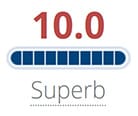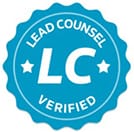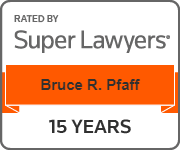Aggressive Representation For Product Defect Injury Victims
Many household products are capable of injuring or killing people: medicines, gas grills, electrical equipment and garage door openers, to name just a few. It is up to product designers, manufacturers, distributors and marketers to keep consumers safe and informed of risks associated with a product’s use.
At Pfaff, Gill & Ports, Ltd., our product liability lawyers have many years of experience in winning cases involving consumer product defects. We have dedicated our practice to helping consumers get the compensation they deserve, whether that means suing McNeil Consumer Products Company for unsafe marketing of Tylenol capsules that led to seven deaths in 1982, or suing a major garage door opener manufacturer for failing to have infrared beam safety devices in their garage door openers sold in the early 1990s.
We are not afraid to take on tough opponents. Call us at 312-638-2407 today to set up an appointment and learn about your options in product liability claims.
Tylenol Poisoning
In the Tylenol poisoning cases, Pfaff & Gill, Ltd. Trial Lawyers was one of the three lead attorneys for the trial of the seven consolidated death cases. In developing the case, he was instrumental in maintaining that over-the-counter medication should not be sold in capsules that are not tamper-proof. There was no reason why the Tylenol product could not be delivered in caplet or tablet form, both of which are nearly impervious to tampering. This theory carried the day as the consolidated cases settled on the first day of trial after years of preparation and expert witness work.
Garage Door Operators
Everyone enjoys the convenience of hitting a button on their car to have their garage door open and close. Critical safety features of these devices, however, took until the early 1990s to become mandatory in the United States. It is now a requirement that every garage door operator sold in the U.S. since 1993 have an infrared, noncontact safety system in place so that if anyone passes under a closing garage door and breaks the electric eye-beam, the door stops and reverses.
Before 1993, some manufacturers offered the infrared safety device as a high-cost option. The technology was available long before 1993, but manufacturers simply did not use it. Safety was again sacrificed so that sales of cheap model products without sufficient safety could be maximized. Older garage door operators had contact safety devices, which were intended to function only if the door struck someone. If the system was working properly and the garage door contacted a person or object, the door was supposed to stop and reverse. However, the safety system did not always work, especially in situations where the floor of a garage was not perfectly level.
Pfaff, Gill & Ports, Ltd., represented a child who was seriously injured in a tragically similar situation. A healthy child was playing and activated the garage door operator. While trying to run out from the garage, the door struck him and crushed his chest against the ground. The child could not breathe for five or more minutes and suffered horrifyingly severe brain injuries. At the time the garage door operator was manufactured in 1991, no law mandated the infrared eye-beam safety system. Nevertheless, Pfaff, Gill & Ports, Ltd., pursued a case against the designer and manufacturer of the garage door operator in a hotly disputed federal court case, which ultimately settled for $9 million. A video clip showing that particular garage door operator prone to failure is shown below.
Pfaff, Gill & Ports, Ltd., took testimony from the engineers at Underwriters Laboratories and other big groups that failed to incorporate the use of an appropriate noncontact safety system until mandated to do so by the United States federal government.
Contact Us Now For A Free Consultation
If you, a loved one or a client has sustained serious personal injuries in an accident that involves a defective consumer product, contact our product liability attorneys today to schedule a free consultation. We will examine the details of your case to see if you have a legitimate claim.
Call our Chicago office at 312-638-2407 or 312-638-2407. You can also reach us online.













